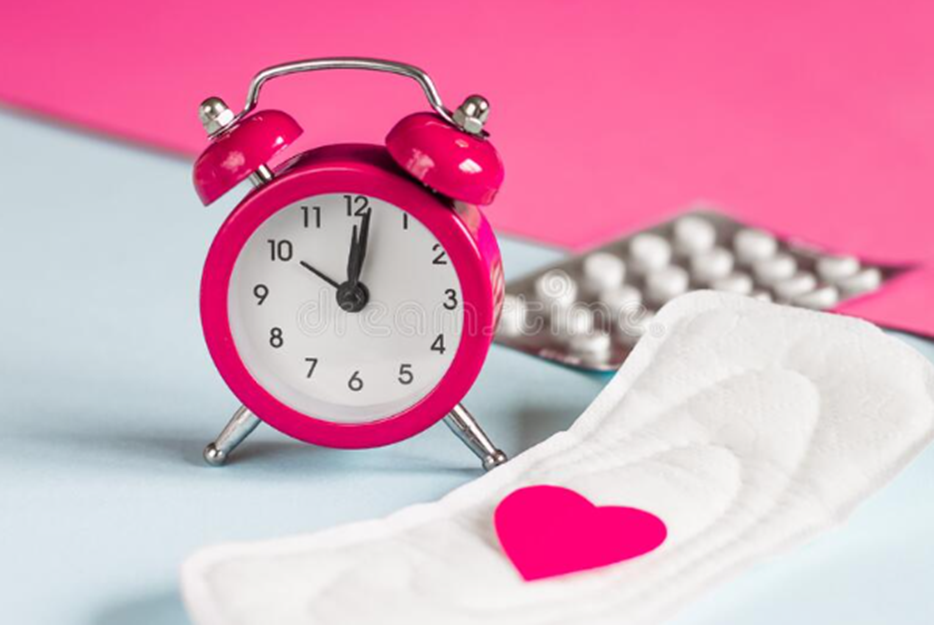How Do Period Delay Tablets Work?



Periods are a seemingly endless source of discomfort and frustration. They often include troublesome symptoms such as cramps, moodiness, sudden food cravings, and sensitive breasts while being expensive and inconvenient, especially if they fall on holidays or special occasions. The latter would perhaps be a good reason for some women to consider delaying their period.
One easy and safe to delay the period is through the use of period delay tablets. Read on to learn about these tablets, how they work, and what could be the pros and cons of taking them.
Period delay tablets contain a synthetic hormone that mimics the body's progesterone to help delay the end of a natural cycle and thereby delay a period. Women who are not currently using the combination oral birth control pill are the only ones who should consider taking these tablets.
Hormonal changes control the timing of periods, taking place every month. It happens when the ovaries release the hormone oestrogen to thicken the womb's lining in the first two weeks of each month. After ovulation, the hormone progesterone maintains that womb lining for the next two weeks in preparation for the arrival of a fertilised egg. When fertilisation or pregnancy fails to happen, the progesterone levels fall abruptly, which causes the womb to shed its lining. This is when a woman's period begins.
Period delay tablets contain norethisterone, a synthetic version of progesterone. They work by keeping the progesterone levels in the body artificially higher for longer – eventually delaying the arrival of a period as the tablets signal the uterus that it doesn't have to shed.
Read more: What is norethisterone used for?
There is a time limit to the length of time that the thicker lining of the womb may be maintained. In most cases, you will only be allowed to postpone taking these medications for around two weeks after the initially scheduled time. Beginners should start the period delay tablets around three days before their period is due. The tablets are to be taken thrice daily for as long as they want to delay their period but stay within 17 days of the pills. After discontinuing the norethisterone pills, the deferred period should start about two or three days later. Every person is different, so a slightly altered approach to timing and effectiveness may be required.
Period delay tablets are designed to delay periods, not prevent pregnancy. For this reason, if you use period delay tablets, you must also use contraception if you wish to prevent conception.
For the case of progesterone-only birth control methods such as the progestogen-only pill or the implant, further studies are yet to confirm the effects of taking a period delay tablet simultaneously with these contraceptives. It may pose no harm, but it is best to discuss it first with your doctor.
For women who use combined oral birth control, norethisterone is best not to be used to delay periods. When you stop taking the norethisterone tablets, your menstruation should start around two or three days later than usual. It poses no harm and does not influence the effectiveness of the combined pill as a contraceptive.
Read more: Understanding the menstrual cycle.
The medication has a good safety profile when used correctly and as directed by a professional. But, it is essential to read the 'Patient Information Leaflet' that comes with the medication to understand its side effects and how to take it since most, if not all, medications can come with side effects. Norethisterone may have these common side effects which everyone may not experience:
Acne
Spotting
Irregular bleeding
Breast tenderness
Reduced libido
Nausea
The longer a woman takes the tablets, the more likely she'll experience side effects. In addition, some women should not use the said tablets to delay a period. These are women who:
are pregnant or possibly pregnant
have just given birth
are breastfeeding
have liver tumours
have breast cancer
have other uncommon medical conditions
It is possible that the process through which the body metabolises norethisterone also contributes to an increased risk of developing blood clots, hence rendering it inappropriate for use in female patients who have already suffered from blood clots or who have a higher risk of developing such a condition. For this reason, it is advised to stay hydrated and move around often, especially on long flights. Additionally, there is the potential for interactions between norethisterone and some pharmaceuticals, such as:
Antibiotics for tuberculosis (e.g. rifampicin, rifabutin).
Anticancer medicines.
Blood thinning medication (e.g. warfarin).
Ciclosporin (for suppressing the immune system).
Products from herbs include St. John's Wort (Hypericum perforatum).
Medicines for high blood pressure.
Medications that can be used to treat epilepsy (e.g. phenytoin, carbamazepine).
Tablets that delay your period are one option for women who want to postpone the onset of their period. This desire is common among women. The tablets may only be for some women and thus, they have to consult with and be prescribed by a doctor. A woman can exercise control over one's menstrual cycle through the availability of methods to postpone her period on occasion and the ease with which this can be accomplished at a local pharmacy.

The advice for women is to take norethisterone three days before the expected start of their period. One tablet will be taken three times a day for the duration of the course. The delayed bleeding will only start once you have finished the course, around two to three days after stopping the tablets.
There are a lot of rumoured methods to delay your period. Below are some of them, and explain why they can or cannot be used to delay your period.
Contraceptive pills. The continuous taking of pills stops hormone levels from dropping, which results in the absence of bleeding. Take packs back-to-back to delay menstrual bleeding if you're on a fixed dose of the combined contraceptive pill. Miss out on the pill-free week by taking two packs in a row unless you are using a 28-day pill pack, where the last seven days are dummy pills without the active ingredients. This does not work for the mini pill.
Exercise. An abrupt start of a high level of physical training can disrupt the menstrual cycle. Although a trigger, exercise is not a reliable method to delay your period.
Stress. This is not a method but one factor that can delay the period. When you're under severe pressure, your body responds by not ovulating; hence most women do not get pregnant when in distress. Like exercise, it is not a reliable method to delay as stress is neither easy nor desirable. Read more: Can stress delay my period?
Vitamin B6 supplements. Vitamin B6 has been subjected to medical trials to look at its potential to treat pre-menstrual syndrome (PMS). In the case of a delaying period, there is no medical evidence that Vitamin B6 is reliable. Still, it is often discussed in online forums.
Gelatin. Anti-estrogenic properties cause periods to delay. Gelatin contains such properties, but there is no scientific research to support nor disprove the claim that it does delay the period. It is not a method that may be advised for delaying periods. Only medications that directly affect hormone levels have been shown to have this effect. In addition, no study supports the assertion that either gram lentils or apple cider vinegar (other foods recommended for the period delay) work.
Drinking coffee. It has been demonstrated that drinking coffee can impact the levels of female hormones. Still, the effects need to be more consistent to delay a period.
On the other hand, some meals might have the opposite effect on a woman's menstrual cycle, causing her period to start earlier than usual.
Carotene-containing foods. It has been hypothesized that a rise in oestrogen due to the consumption of beta-carotene, which is found in orange foods including papaya, carrots, pumpkins, and pomegranate, may result in the onset of menstruation at an earlier age. It is possible to prevent having a bleed at a specific moment by bringing one's period ahead. There is some evidence that beta-carotene levels change throughout the menstrual cycle. There is also some evidence that beta-carotene levels are linked to oestrogen levels. However, the precise processes continue to be a mystery. Scientific studies have yet to prove that eating the product will produce the desired effect foods. It is a commonly cited home treatment for inducing menstruation. No published data support (or refute) this claim. In any case, avoiding spicy foods has little effect on menstrual delay.
Heating the pelvis. The uterus can be warmed by soaking in a hot bath or applying a warm compress to the lower belly. For example, it can cause local dilation of blood vessels and increased blood supply. Blood vessel dilation and an increase in blood supply can increase the menstrual blood flow. However, this method is unlikely to trigger a period that wasn't about to start.
Herbs to alter period. Herbalists of the past now rely on shepherd's purse and yarrow to lessen the duration and severity of menstrual bleeding. There is data supporting the benefit of each herb in reducing menstrual bleeding. However, they do not affect menstrual cycle time.
Read more: How to make your period come faster.
Anything that boosts the levels of female hormones, particularly oestrogen, can increase the risk of blood clot formation. It includes pregnancy hormone pills for contraception and hormone tablets to delay the period.
The risk of blood clots is low when hormones are used to delay periods because they are only used for a short time compared to birth control, but they are taken in more significant amounts. The risk is higher with norethisterone because it is converted in the body from a progestogen to an oestrogen. Provera, another period delay tablet, is a lesser risky option.
Women are often prescribed 30 or 60 tablets to delay periods by seven days or 17 days. One tablet is taken three times a day, starting three days before the period is expected to arrive. If you take them too close to your period, they may not work as well or at all because your natural hormone levels have already started to drop. Consult your doctor if you want to delay your period for more than 17 days.
Taking tablets to delay periods is for occasional use only, a maximum of four times a year (not more than once every three months). If you need more control over the timing of periods, seek professional advice from your doctor. Other types of hormonal contraception can help you achieve a reduction in getting rid of your period.
A standard menstrual cycle takes 28 days. Whether your cycle is the standard or the shorter, the general rule is to start taking norethisterone three days before your next expected period. Hence, for instance, if your monthly cycle is 24 days, start taking the tablets 21 days after the start of your last period. Likewise, if you generally have a longer cycle, start the pills three days before you expect your next period.
This article is not meant to replace professional medical advice or diagnosis. If you have questions about your health, you should always talk to your doctor or another qualified healthcare provider.
For more information about period delay tablets and other menstrual issues, you might have in mind, read thoroughly here.
Plus get the inside scoop on our latest content and updates in our monthly newsletter.